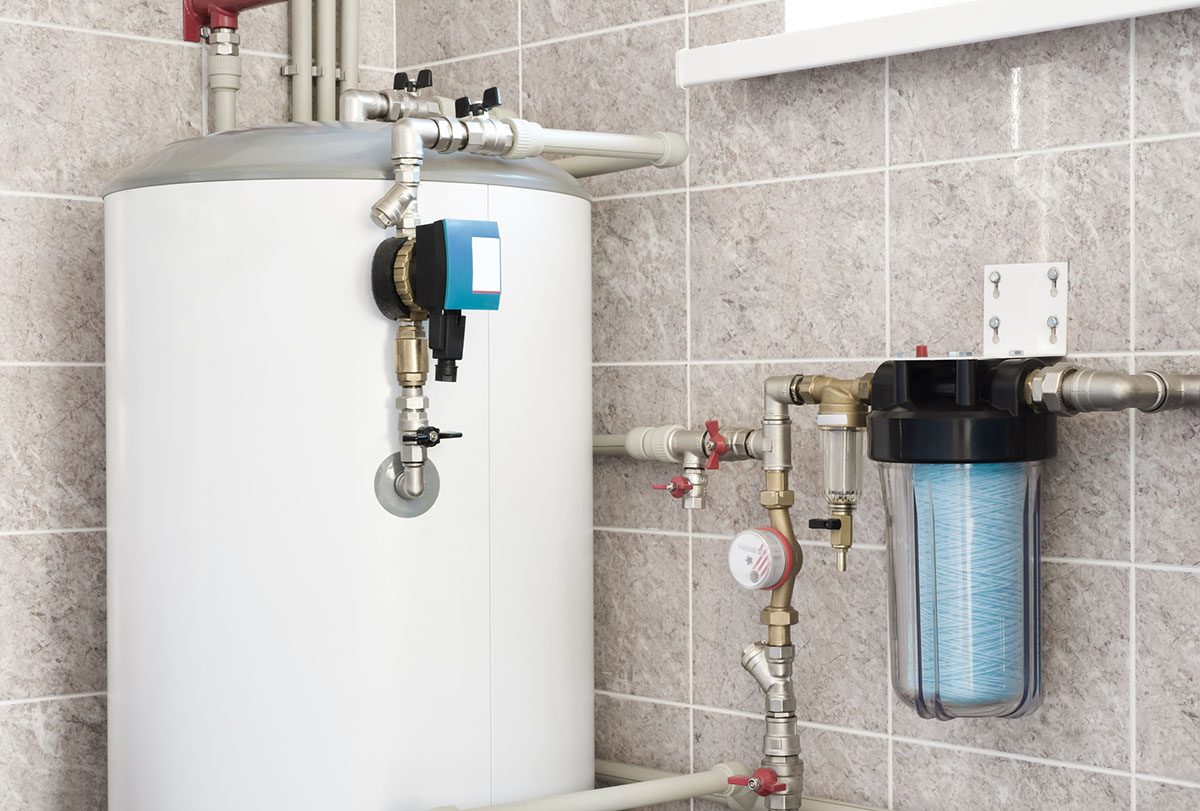

We may earn revenue from the products available on this page and participate in affiliate programs. Learn More ›
- Typical Range: $3,624 to $8,061
- National Average: $5,678
Choosing a new residential boiler can be daunting, but armed with the right information, it’s easier to make an informed decision about your heating system.
Size is not the only consideration when choosing a new boiler: the efficiency rating and the heating method are considerations, too.
Residential boiler prices vary based on size, efficiency rating, and fuel type (which includes oil, electric, propane, steam, or a combination of these) with the national average being $5,678, a price that includes installation.
How to Estimate Residential Boiler Prices
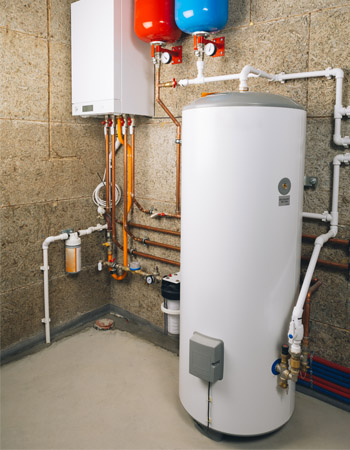
The cost of a boiler is mainly determined by the size of the unit, which correlates to its BTU (British Thermal Unit) output. The average cost of a residential boiler unit without installation ranges between $2,700 and $7,700, with corresponding BTU outputs of 80,000 and 200,000, respectively.
This easy method can help choose which size boiler is best for your home.
- Identify the square footage of your home.
- Multiply the square footage by one of the following categories:
- 30 or 40 for warm climates,
- 40 or 50 for moderate climates,
- 50 or 60 for mountain or cold climates,
- 60 or 70 for frigid climates.
Owners of homes that are more than 20 years old are advised to use the higher number to ensure the boiler can accommodate older construction materials that may not insulate as well as new construction materials.
Key Cost Factors
These are some of the main factors that affect residential boiler prices.
Boiler Type
In terms of installation, ‘combi’ boilers are generally the least expensive, while conventional boilers are the most expensive. Each of these kinds of boilers are available in standard and high-efficiency options.
Boiler Size
A general rule of thumb is that the larger the residential boiler, the higher the cost. While large, efficient boilers may seem cost-effective to ensure adequate heating, if the unit is too large for the home, the boiler may be unable to heat the space properly before turning off as a safety measure. Using the calculation to determine the correct BTU output for the area of the home is an important factor in ensuring that the monthly costs are not a waste of your resources. Additionally, larger heaters will require additional labor and infrastructure to install, potentially increasing the up-front costs.
Fuel Type: Gas, Solid Fuel, Electric, and More
Homeowners may prefer one fuel source over another, especially if the infrastructure already exists in the neighborhood. Propane boilers are popular options and run efficiently, but they can cost more than gas boilers. Oil boilers, like condensing boilers, can cost more per month since a large tank is needed to hold the oil and oil prices fluctuate frequently, but they offer more heat per BTU and may be an ideal option for rural areas. Electric boilers use electricity to power the unit, making them efficient, but they are not always powerful enough to heat homes in cooler climates. Steam boilers are less common in new homes, but they operate by heating water or steam and pushing it to baseboard heaters and radiators through a network of pipes.
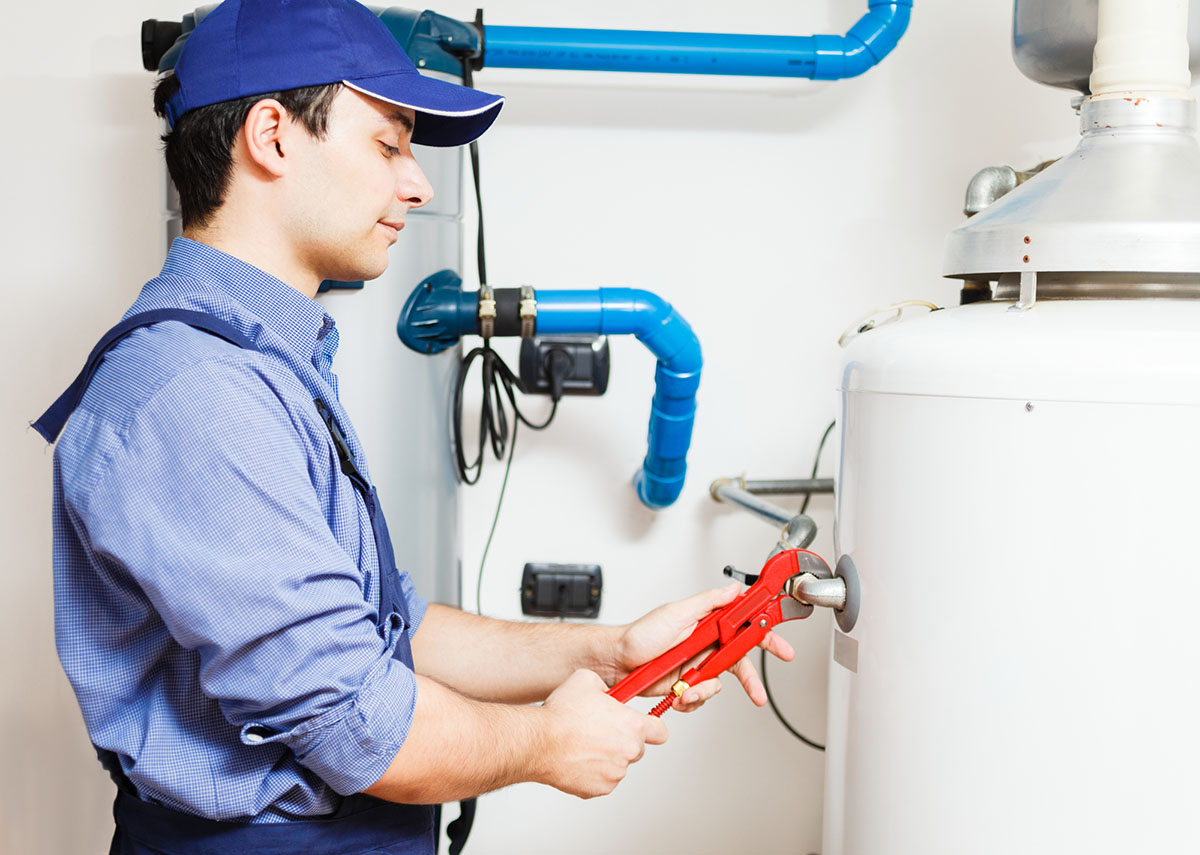
Additional Costs and Considerations
Boiler installation cost can also be affected by the cost of permits required for new construction, safety inspections, and upgrades of existing equipment in the home. Climate and geographic locations also influence how powerful the boiler needs to be and how much insulation may be required in the home.
Installation and Permits
HVAC professionals typically charge between $75 and $125 per hour and sometimes up to $200 for installing new residential boilers. After a technician has reviewed the work needed, labor may be charged as a flat rate fee. Installation permits can cost between $50 to $300, with the higher end most commonly for new builds. If inspection fees are needed, the cost can run between $40 and $75.
New Gas Lines
Depending on the location, when a replacement gas boiler is being installed, it’s likely that a new gas line will need to be installed as well to ensure that it’s correctly lined up to the new system, free from damage, and safe to use.
Season
Before the cold weather even sets in, you may want to start thinking about how to heat your home. Residential boiler prices are often less expensive in the summer months than they are in the wintertime.
Home Insulation Efficiency
Most new homes are built with plenty of insulation to help regulate the internal house temperature. These homes are efficient at maintaining hot and cold temperatures. Older homes typically have less insulation or insulation that has broken down over time. Heat loss occurs easily in these homes, so boilers will have to work extra hard to keep the house comfortably warm.
Asbestos Removal
An unexpected cost could arise in older homes when an inspection is completed on existing ductwork. If asbestos is found, the cost to replace or repair a residential boiler will likely increase because of the time and labor involved to remove asbestos according to hazardous material guidelines. Some contractors charge a minimum of $1,500 to $3,000 to remove asbestos.

Types of Boilers
Residential boilers may require storage tanks for heated water, depending on if a standard, combi, or system boiler is chosen. Boilers without tanks can reduce the footprint of the unit in the home for a lower cost, but they may be less effective for large homes without a storage tank of hot water.
Standard Boiler
Conventional or standard boilers are commonly used for new home constructions and cost $3,500 on average. A single unit heats water rapidly and sends that hot water through pipes to faucets. These models also work well for radiant heat flooring when pipes are installed under hardwood floors to radiate warmth from the heated pipes. Though this is an additional cost up front, it can save some money in the long run as the radiant flooring heat helps maintain a warmer temperature in the house overall.
Combi Boiler
Combi boilers are often wall-mounted units that are convenient for small spaces since they do not require a storage tank. They can heat both water and air at the same time, which can be more cost efficient in the long run. These units work best in milder climates rather than frigid climates where the additional reserve water tank may be helpful to keep a steady supply of hot water and heat. The average price for combination boilers ranges between $2,600 and $6,800.
System Boiler
System boilers can cost between $3,000 and $5,500. They are best suited for average-size and larger homes where the hot water tank helps ensure that hot water is available instantly from any faucet. With a system boiler, the water tank stores preheated water, offering a large supply of hot water on demand.
Do You Need a New Boiler?
In general, boilers need to be replaced every 15 years. This helps ensure that old boilers are replaced with more energy-efficient systems to reduce monthly costs and maintain safe operation. However, there are also signs that indicate you need a new boiler. For example, a boiler needs to be replaced if it requires frequent repairs that use funds better spent on a new and more efficient boiler. Odd sounds, leaks, and fluctuations in water temperature are other indications that it’s time to consider replacing an old boiler.
Common Signs You Need a New Boiler
While most home appliances make some sounds, when a residential boiler starts making a lot of noisy sounds, it’s time to have a professional investigate whether sludge has built up in the system or the pipes and valves are wearing out. If there is a new smell like rotten eggs coming from the boiler or if it’s leaking anywhere, calling a licensed professional is highly recommended to ensure it’s operating safely or to know whether it needs to be replaced.
Cost Savings
When boilers reach their lifespan, their efficiency rating deteriorates due to corrosion, sediment buildup, and thermal efficiency declines. An AFUE (Annualized Fuel Utilization Efficiency) rating of 56 to 75 percent is common for older boilers, and this translates to higher costs to power the boiler to maintain hot air and water. Newer models have efficiency ranges from 80 to 98 percent. Boilers with an efficiency rating above 90 percent can reduce heating costs by up to 30 percent.
Improved Reliability
With a newly installed residential boiler, homeowners can worry less about having hot water and a warm house when needed. New units are reliable, operate at the model’s optimum efficiency, and reduce the risk of safety hazards that older units can pose. Choosing a brand and installation company that have trusted reviews and safety records can help ensure that you get a reliable boiler and installation.
Added Value to Property
Many prospective home buyers are interested in homes that offer energy savings that range from solar panels to high-efficiency boilers. Choosing to install a residential boiler that has a high efficiency rating can boost the value of your home and offers a green alternative to homes that do not have upgraded systems. This also offers a peace of mind value to buyers who want to move into a home with updated features.
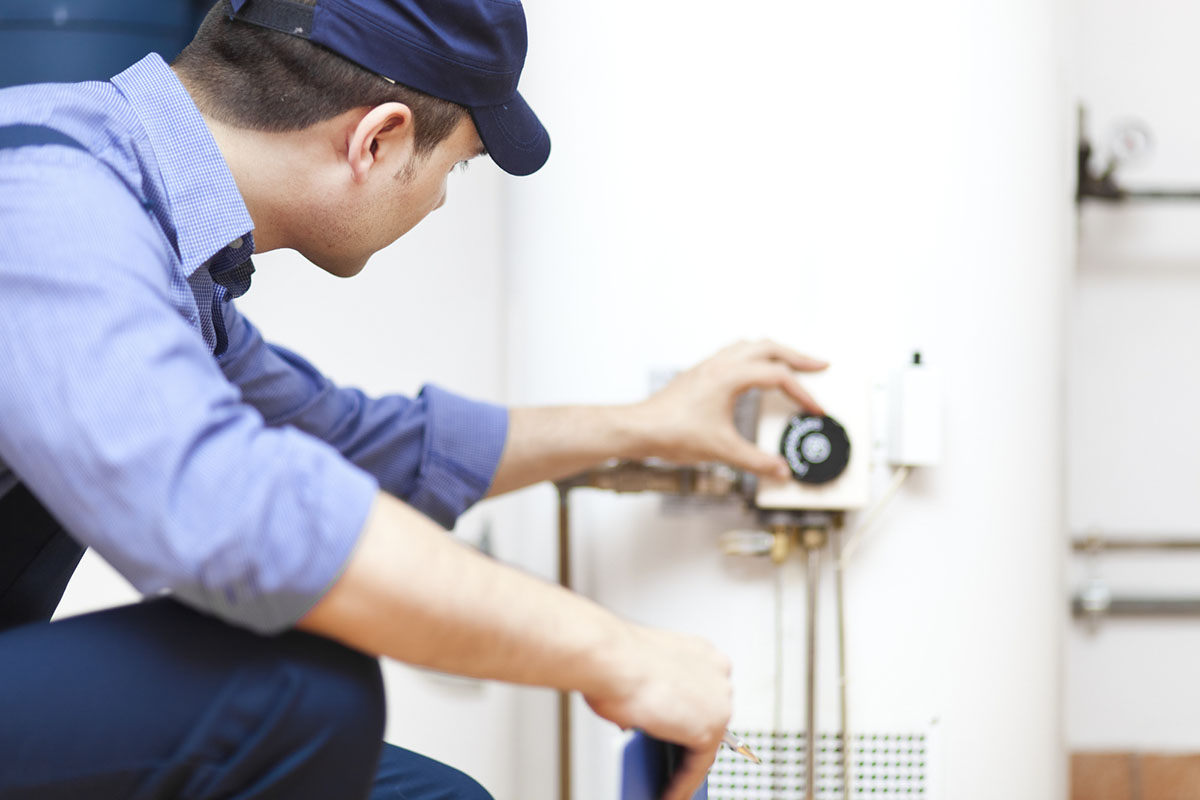
Residential Boiler Prices: DIY vs. Hiring a Professional
While working with a residential boiler may be tempting for those who love to tackle DIY projects at home, there are times that it’s best to leave certain jobs to trained professionals. Some states require that boilers are installed only by licensed professionals. Installing residential boilers is a job best left to a licensed professional who is trained and certified in connecting and operating appliances, especially those connected to a power source like gas or electricity. Licensed professionals are able to install a boiler without spilling water that could damage any nearby flooring, and they carry insurance in case an accident happens.
Some professional HVAC companies don’t install units that they did not also supply. This helps ensure their technicians are qualified and comfortable installing the chosen model, which ensures homeowner safety in the long run.
After a new boiler is installed, homeowners are encouraged to actively make sure the boiler is operating properly. Checking valve pressures and identifying leaks and odd smells are a regular part of home maintenance. Boilers often come with a manual for homeowners to review and help them become familiar with how their boiler operates. There are troubleshooting sections that are specific to their boiler model.
For the bigger problems that can’t be solved quickly, the company that installed the boiler can also complete any major repairs that may be necessary when cracks, banging sounds, or foul smells are discovered. While repairing a boiler may cost between $200 and $600 on average, it’s considered worth the cost to keep a boiler running smoothly and safely.
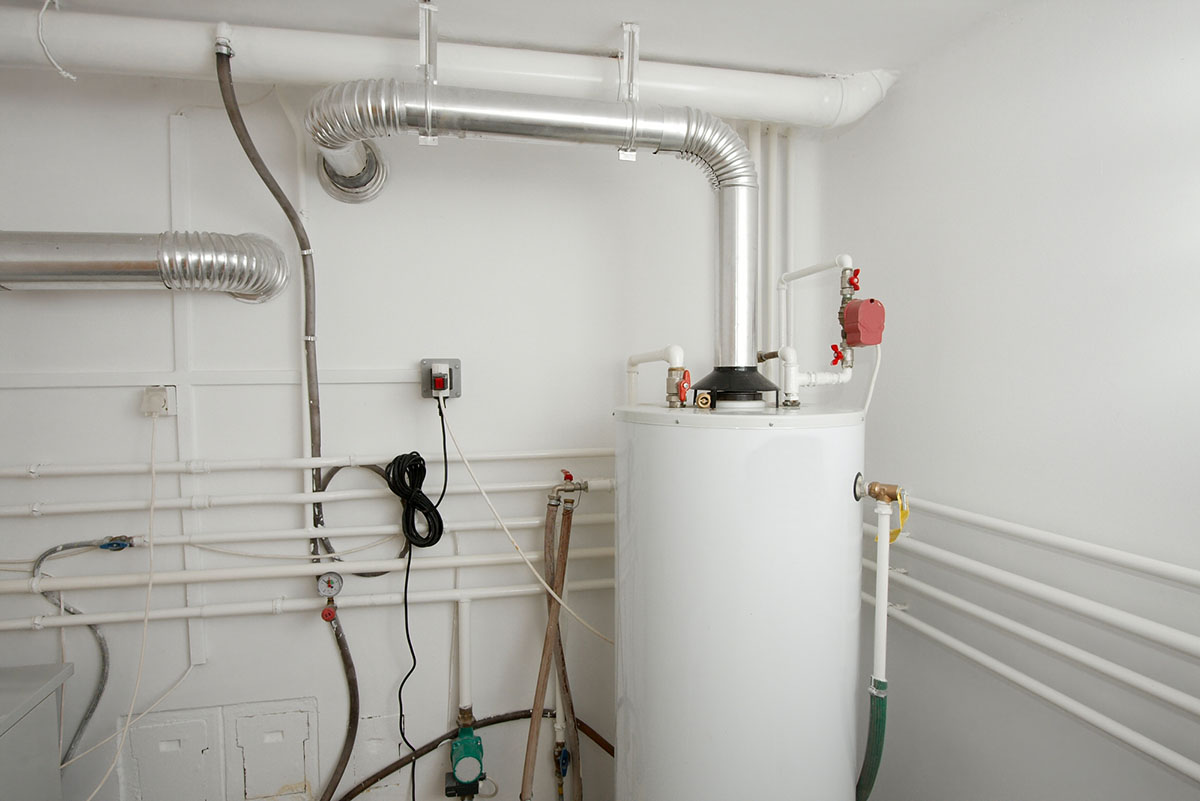
How to Save Money on Residential Boiler Prices
Saving money on a new residential boiler is possible. Not only do HVAC companies offer discounts at different times of the year, but there may also be rebates or tax-cut incentives available. Here are a few tips to keep in mind if you are searching for a new boiler.
- Obtain at least two or three quotes for a new boiler installation and negotiate for a lower price.
- Check for discounts online or in local newspapers.
- Check the Database of State Incentives for Renewables & Efficiency for any available rebates or tax-cut incentives for buying a high-efficiency boiler.
- Calculate the correct size of boiler that’s needed rather than opting for one with the highest BTU output.
- Opt for a trusted company and brand-name boiler.
- Check for long-term warranties to protect against the cost of any repairs down the road.
Questions to Ask About Residential Boiler Prices
If buying a new or replacement boiler is imminent, there are questions you can ask that can help clarify if you are making the right choice for your needs. Consider asking the following questions when deciding to install a new or replacement boiler.
- How much more can I save with a high-efficiency boiler?
- Should I consider changing the kind of boiler I have to better suit my home?
- Will any other equipment or ductwork need to be replaced as well? If so, how much will that cost?
- Will my existing thermostat work with the new boiler?
- Do you offer warranties or guarantees on the boiler system or installation?
- Is installation a flat rate and included in the price?
- How much will this new boiler cost to run each month on average?
- What problems should I watch for that require technical repair?
FAQs
Choosing the right kind of boiler is the first step to ensuring a home is properly heated. Here are some frequently asked questions that can help guide the decision-making process when determining residential boiler prices.
Q. How long do gas boilers last?
Typically, boilers can operate for 15 to 20 years before needing to be replaced, as long as they have been regularly maintained.
Q. How do steam boilers work?
Steam boilers have few moving parts and provide dust-free heat and do not force air through ductwork. According to HomeAdvisor, steam boilers heat water with gas or oil until they produce steam that gets forced through the pipes that lead to radiators, baseboard heaters, or under-the-floor piping that provides radiant heat.
Q. Is a furnace the same as a boiler?
No. Furnaces heat air and use a blower to force the air into open spaces within the house via ductwork. Boilers heat water or steam and push the air through pipework to generate heat anywhere the pipes run in the walls or floors. Furnaces can dry out the air in a home, while boilers can produce extra humidity. Similarly, furnace cost will not be the same as the price of a boiler.
Q. Is it cheaper to heat with propane or electricity?
Propane is typically cheaper to use as a power source for a residential boiler by up to one-third less overall per the U.S. Department of Energy. Propane is also able to produce a more consistent, higher temperature of 120 degrees compared to the 95 degrees that electricity can produce.
Q. How do you know when your boiler needs to be replaced?
Frequently breaking down and needing repair is the most common sign that a boiler needs to be replaced, particularly if it is 15 years old or older. Leaks, valve problems, fluctuating water temperatures, banging sounds, and odd smells are additional indicators that the boiler may need to be replaced rather than repaired.
